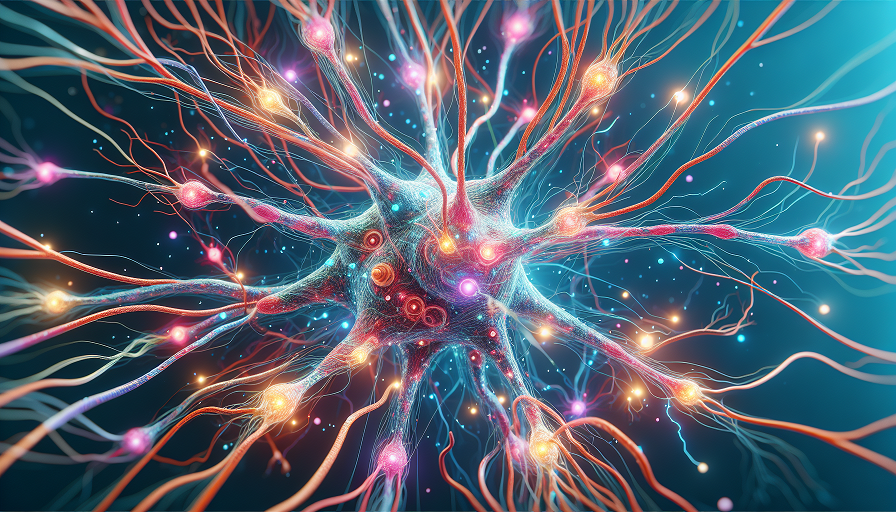
Short answer: Chewing gum can provide a small, short-lived boost to alertness and certain attention or memory tasks for some people, but it is not a reliable way to raise test scores. The benefits – when they appear – tend to be modest and depend on timing, task type, and individual differences. Gum should complement, not replace, proven study strategies and good sleep.
Contents
Why Chewing Might Help the Brain
Chewing is more than a habit; it’s rhythmic motor activity that can nudge arousal systems. Mastication slightly increases heart rate and sympathetic tone, and it may elevate norepinephrine in the locus coeruleus – signals that can sharpen vigilance. Neuroimaging and near-infrared spectroscopy studies report increased blood flow in prefrontal and hippocampal regions during chewing, plausibly supporting working memory and attention. The effects are subtle; think of gum as a quick arousal cue similar to a brief movement break.
What the Research Tends to Find
Results are mixed across experiments, but several trends show up:
- Sustained attention: Some studies show faster reaction times and fewer lapses during the first 10–20 minutes of a task when participants chew gum.
- Working memory & recall: Small improvements have been observed for immediate recall or simple working-memory tasks; effects often vanish on more complex reasoning problems.
- No benefit or small costs: Other trials find no benefit, or slight decrements when chewing divides attention on challenging items (dual-task interference).
- Habituation: Benefits, when present, fade as the novelty of chewing wears off – typically after the first portion of a session.
Translation: gum can help you start focused, but it won’t compensate for poor preparation, sleep loss, or weak study technique.
Timing and Dose (Yes, Gum Has a “Dose”)
The arousal bump appears strongest early. A practical approach is to begin chewing 5–10 minutes before a study block or exam to prime alertness. Once you feel settled, consider parking or discarding the gum to avoid ongoing distraction. If you do keep chewing, use a slow, quiet rhythm to minimize dual-task costs and social disruption in a testing room.
Sugar vs. Sugar-Free
Gum with sugar can deliver a small glucose boost that may briefly help memory, but it risks an energy dip later and isn’t ideal for teeth. Sugar-free options avoid crashes and protect dental health. Xylitol-sweetened gum, in particular, has oral health benefits. For cognitive purposes, the chewing action – not sugar – is the main ingredient.
Context-Dependent Memory: Should You Chew in Both Study and Test?
Learning can be tied to context cues (state-dependent memory). If you study while chewing and then test while chewing, recall might feel more fluent. The effect is usually small and inconsistent, and many testing environments prohibit gum. If allowed, matching states won’t hurt; if not, don’t rely on it – use broadly effective methods like spaced retrieval and interleaving.
Practical, Science-Guided Tips
- Use gum as a starter, not a crutch: Chew for 5–10 minutes to kick-start attention, then pause once you’re engaged.
- Keep it quiet and slow: Choose soft, sugar-free gum; chew gently to avoid noise and jaw fatigue.
- Test the routine first: Try gum during practice tests to see whether it helps or distracts you.
- Mind the rules: Many classrooms and testing centers ban gum. Don’t risk a penalty.
- Prioritize fundamentals: Sleep 7–9 hours, use spaced repetition and active recall, batch tasks, and hydrate – these have larger effects than any chewing trick.
Who Might Benefit Most?
- Students who struggle with initial task engagement or afternoon dips in alertness.
- People who find small, rhythmic movement soothing (similar to fidget devices).
- Test-takers allowed to chew quietly without distraction to others.
Limitations and When to Avoid Gum
Chewing can aggravate temporomandibular joint (TMJ) issues, be difficult with braces, or cause stomach discomfort if swallowed air is a problem. In strict testing environments, gum may be prohibited or considered disruptive. And for some, the act of chewing divides attention on complex items. If you notice slower reading or calculation while chewing, skip it.
Bottom Line
Chewing gum offers a modest, short-term alertness boost that may smooth the start of study sessions or the first minutes of an exam. Effects on actual test scores are inconsistent and small. Treat gum as a tactical aid alongside strong preparation, smart scheduling, and solid sleep – not as a study strategy in itself.

